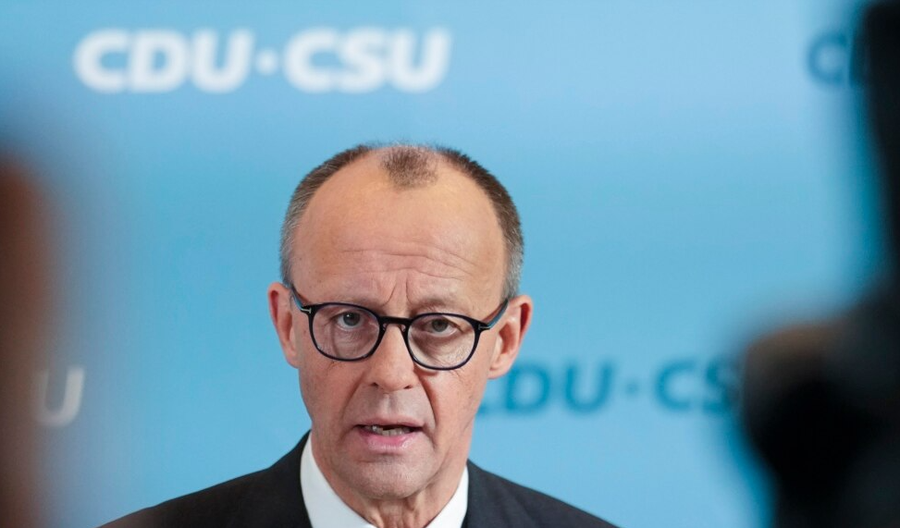
Friedrich Merz, who is likely to be Germany's next chancellor after winning the most votes in Sunday's election, said the United States "doesn't really care" about the fate of Europe, as he put it - and called for the European continent to urgently organize its defense capability. As VOA's Henry Ridgwell reports, the comments mark a profound shift in the country's approach to Europe's largest economy.
The Brandenburg Gate - once the border between East and West Berlin during the Cold War - was lit up in blue and yellow on Monday, marking the third anniversary of Russia's frontal attack on Ukraine.
The threat from Moscow shaped the backdrop to Sunday's German elections - won by the center-right Christian Democrats.
Juergen Harke was among the participants in the rally in front of the Brandenburg Gate.
"I hope that the new government will continue to supply weapons to Ukraine, that it will work together with European countries to create a major counterweight to Russia - and now to Trump," says Mr. Harke.
Under US President Donald Trump, there has been a dramatic shift in US policy towards Ukraine, most recently blaming Kiev for starting the war. Washington has said that European security is no longer a priority.
After winning Sunday's German election, Christian Democrat leader Friedrich Merz said that President Trump's administration "doesn't care much about the fate of Europe," as he put it.
"It is clear that we Europeans now need to be able to act very quickly and that we also need to organize our defense capabilities very quickly," he said.
Mr Merz is a strong supporter of transatlantic ties and his comments mark a seismic shift for Germany and Europe, says analyst Mattia Nelles.
“We, as Germany, are shocked and completely unprepared for the end of Pax Americana, the end of America’s provision of security for Europe. And we now find ourselves in a difficult position to make a transition from the US, as the main guarantor of security, to a more European-led approach. Not just for Ukraine, but for organizing our own defense. But Merz has said he is ready to lead in this direction, and let’s see if we are able to increase the commitment,” says analyst Nelles.
Can Europe afford to pay for its own defense? Mr. Merz will have to change his stance on fiscal matters, says analyst Liana Fix.
"He could agree to join the common debt at the European level, which has always been hated by the Conservatives. And he could accept the seizure of frozen Russian assets, which has not been done so far, but should be done soon. He has talked about the need for Britain and France to extend the nuclear [security] umbrella to include Germany, as a possible solution," says analyst Fix.
The Christian Democrats do not have a majority. Mr. Merz has ruled out forming a coalition with the far-right Alternative for Germany (AfD), which came in second with a record 20.8 percent in Sunday's vote. The stance of centrist parties, which refuse to cooperate with the AfD, has been sharply criticized by Washington.
"We consider this blockade to be undemocratic. You cannot exclude millions of voters by yourself," says Alice Weidel, a leader in the Alternative for Germany party.
Instead, Mr Merz will begin coalition talks with outgoing Chancellor Olaf Scholz's Social Democrats.
In addition to defense spending, reducing immigration and boosting Germany's struggling economy are likely to dominate discussions./ VOA (A2 Televizion)











